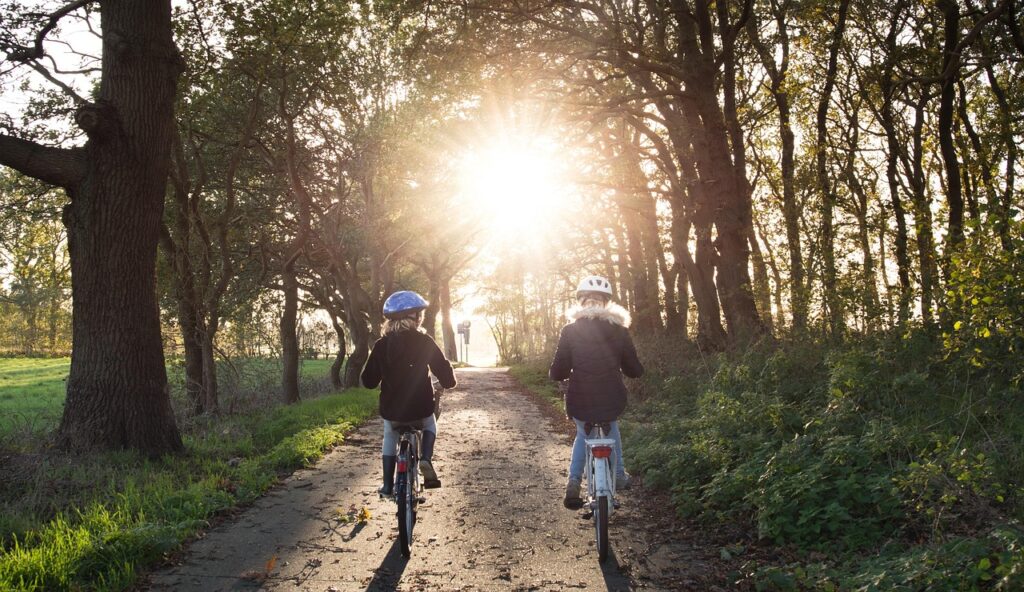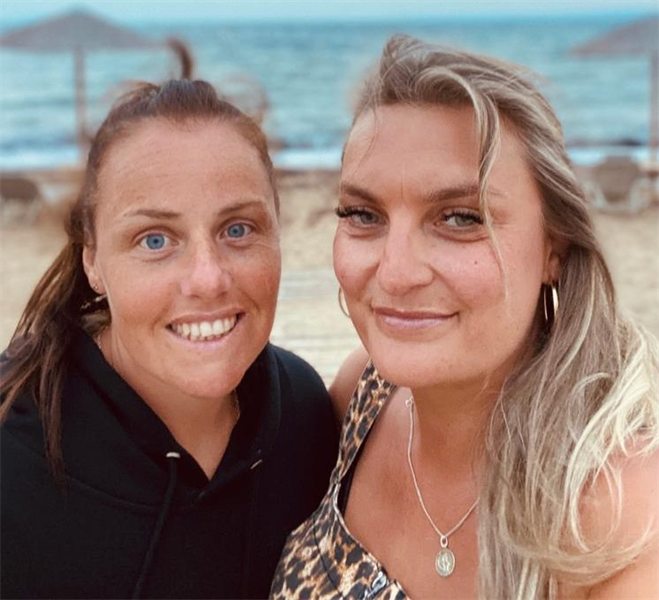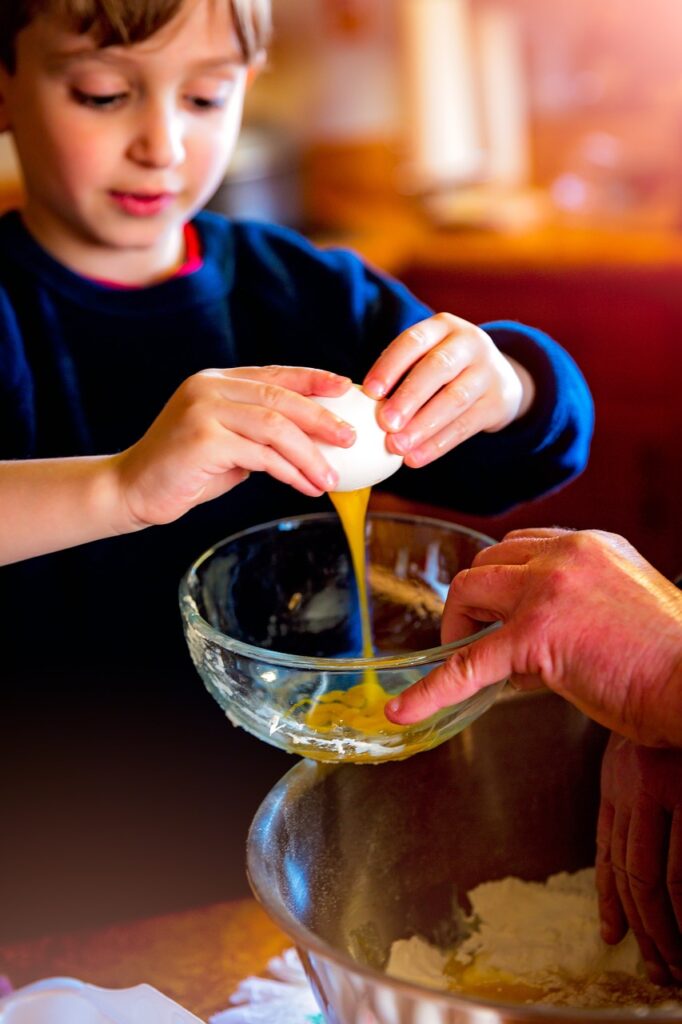5 Things To Do In The Summer Holidays
With the school summer holidays now upon us, you may be thinking of events and activities for the young people in your household.
Planning activities for young people may seem daunting, particularly when there are children of different ages and with different interests in the home. Read our top tips for planning these events, along with 5 activity ideas.
Planning ahead is key
Planning ahead is not only important for high demand ticketed events, it also will ensure that both you and the young people in your household are fully prepared and are on board with any plans.
To do this, start by talking to your Supervising Social Worker and all young people in the household.
Talk to your Supervising Social Worker
Talking about some initial ideas for activities with your Supervising Social Worker is a great start before you talk to young people about potential plans. In addition, some activities may require permissions to be granted.
Your Supervising Social Worker will be able to provide valuable insight around possible triggers or situations that young people may find activating.
For example, a young person may feel uncomfortable in large crowds, so this will be something to bear in mind when looking at potential activities.
You may already be aware of what a young person may find ‘activating’ from their Care Plan, but as your Supervising Social Worker will have a direct communication route to a child’s local authority social worker, it’s always a good idea to double check at this stage. This will ensure that you are fully informed and prepared to move onto the next stage: initiating a conversation with your young people and involving them in your planning.
Consulting young people
This may sound obvious, but it’s important to highlight what involving young people in your planning will achieve.
Consulting young people and asking for their input is an important bonding exercise in itself. It will demonstrate that you value their opinions and will nurture feelings of inclusion.
In terms of finalising specific plans, you will be fully prepared to guide young people should they suggest any potentially triggering activities that could impact their mental health and wellbeing.
When events have been arranged, talking about them regularly could help a young person prepare for them. Some young people can struggle with changes to routines so making sure they are aware that activities are imminent could help alleviate anxiety on the day.
If you’re stuck for activities, we have 5 general suggestions for you to investigate with young people in your household.
Our 5 things to do in the summer holidays
1. An extension of their hobbies or interests
A good place to start is with young people’s existing hobbies or interests. Looking for activities that are effectively an extension of their established interests could be perfect for them. Having some experience with the activity already, and maybe knowing what to expect, will also be advantageous if they are not used to trying new experiences.
For example, if they like football, being taken to a football match could be the perfect suggestion. Could that then lead onto them joining a local football team relevant to their age group?
If they like creative writing, are there any local writing groups or courses available?
Alice and James, TACT foster carers since 2022, knew that their young person loved musicals – which gave them the perfect idea for a trip away: “Our highlight might be taking a musical-obsessed teenager who had never been to the theatre before to see Hamilton in London. You’ve never heard someone scream so loud as when I gave her the tickets!”
Nurturing their hobbies could be invaluable in terms of ongoing future activities, and could play a part in memory making.
2. Your hobbies could be the springboard
Have young people expressed an interest in your hobbies or interests?
For young people to try new experiences with someone that they trust could be a springboard for them to discover a new hobby. You would also be able to provide knowledge, guidance and any necessary equipment. It could also provide another valuable bonding opportunity.
Gemma and Jenilee have been TACT foster carers since 2020. Their love of sports provided their children with a new interest: “Gemma and I both go to the gym every day and the children have embraced this. They come to the gym, come running with us and have recently come to support me doing the London marathon and supported Gemma at her cross fit workouts and spin instructor sessions.
“Because I am passionate about football and a club season ticket holder, the little fella has jumped on board. He loves to come to the games and both kids are often found singing the songs.”


“Gemma and I both go to the gym every day and the children have embraced this. They come to the gym, come running with us and have recently come to support me doing the London marathon and supported Gemma at her cross fit workouts and spin instructor sessions.”
Gemma & Jenilee – TACT foster carers since 2020
3. Encourage creative expression activities
As well as providing an activity, getting creative can positively impact a young person’s mental health. This is because creativity can encourage production of dopamine in the brain, commonly known as the ‘feel good neurotransmitter’.
Dopamine helps regulate how we experience pleasure and rewards. It’s closely linked to our ability to think, plan, and stay motivated. It also plays a key role in helping us focus and work towards goals.
Creativity can take many forms. It could be creative writing, making music, producing some art, dancing or even experimenting in the kitchen.
According to Calm, “Research has shown that engaging in creative activities like music, dance, painting, or even crafting is linked to lower levels of anxiety and depression. Creative arts often provide a sense of connection, whether through sharing your work with others or simply feeling more in tune with yourself. It’s not about being good at something. Instead, it’s about allowing yourself to explore and create freely.”

4. Create ‘theme days’
This is a straightforward idea that will require young people to be on board at the planning stage.
- Ask them to come up with a list of activities that end in the word ‘day’, that can be achieved in the home. For example, ‘pizza day’, ‘film day’ or ‘treasure hunt day’. Working with the young person, you will be able to carefully advise or guide them on any activities that could be logistically impossible for your time or resources.
- Get a calendar and ask them to write in when they would like to do each activity.
- Be flexible with the calendar. If a young person doesn’t feel like doing a particular activity, explain that they can swap it for another and that the calendar is not set in stone.
Generating theme days is an excellent way of filling up long stretches of holiday time. Young people are fully involved in the planning and scheduling, encouraging responsibility and ownership.
5. Documenting the summer holidays
This one involves recording or documenting the entire summer holiday break using a medium chosen by the young person.
For example, they could take photographs, write a story – or for the more technically minded, create and edit together a video.
Compiling a scrapbook or collage to consolidate the summer holidays will not only provide an activity in itself, but will be something tangible for young people to look back on and remember.
If a video format was chosen, ensure that you take the time to watch the video back with them.
Our Engagement & Activity Practitioners
At TACT, our Engagement & Activity Practitioners (EAPs) help organise activities for our young people in the summer holiday period.
Some examples of upcoming activities are trips to the zoo, a visit to an aqua park, a Go Ape day, a trip to a museum and a picnic in the park. Larger events include a trip to Colwyn Bay, and FoxFest – where our young people will experience Ed Sheeran and Taylor Swift tribute acts! Aimed at all young people in our fostering households, including carer’s own children, the activities cover various age groups and abilities.
EAPs also organise one-to-one activities, such as trips to the circus, mini golf, bowling and local farm visits.
Our EAPs also signpost to activities over the summer, highlighting any special deals and offers via a newsletter. We find that this can help alleviate pressure on our foster carers to generate a whole programme of events for their young people during the summer holidays.
No matter how you choose to approach the school summer holidays, it’s important to remember that not every day needs to be packed with activities or events. Young people benefit from having quiet time to rest, recharge, and adjust to the change in routine during the break from school.
